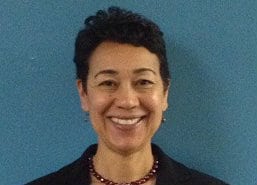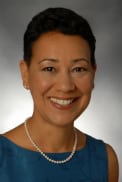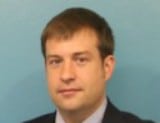How can teachers partner with policymakers to create better policy? This was the challenge posed by Sean McComb, 2014 National Teacher of the Year, at a recent Education Commission of the States National Forum on Education Policy. As the American Youth Policy Forum is focused on facilitating ways for policymakers to work productively with practitioners and researchers, I was excited to hear what McComb had to share. He’s spent the past year travelling all over the country and beyond, talking to teachers, and sharing ways in which educators can work more effectively with policymakers.
McComb observed that policymakers must be frustrated when the policies they create face implementation challenges in the classroom. On the positive side, he highlighted states that are actively working with teachers in policy creation, sharing a quote from Terry Holliday, Kentucky Commissioner of Education: “Our collaboration and partnership with teacher groups has been critical to our success.” McComb also pointed to Connecticut’s state education agency, where four teachers have been included in a hybrid role, spending half days in their classrooms and half at the Department of Education to ensure that policies created in the SEA will work in the classroom. Michigan and Wisconsin have provided networks of teacher leaders that policymakers can consult. As McComb observed, “We would love it if legislators would amass a few teachers to talk to them before policy is made.”
What might teachers talk to legislators about? McComb shared three things that teachers are saying they want and need:
- First, they want to learn and grow. He noted that the model for teacher growth has remained largely unchanged in the last 50 years: observations a few times a year, interspersed with a few professional development days. The constructive feedback teachers receive is “not that great,” and McComb noted that a recent report by the Gates Foundation found that fewer than three in 10 teachers are satisfied with their professional development. By comparison, he commented on other countries that hold up teaching as one of their most sacred practices, where teachers are treated as professionals and have time to plan together, examine student work, and observe one another. This kind of environment demands not only time, but also trust, and teachers want both of those important elements.
- Second, teachers want us to reexamine how learning is measured. He emphasized that tests are necessary but that teachers want to be able to use multiple measures and holistically evaluate children. He noted that many tests are being used in ways they were not intended to be used. Ideally, a variety of factors should be included in student achievement and broad test scores should not be used for high stakes personnel decisions.
- Third, McComb urged a conversation focused on poverty. “If we want a different outcome, we need to look at childhood as a whole,” he emphasized. Schools need to engage in activities such as home visits so that teachers can get to know more about their students’ When students qualify for free and reduced priced meals that should trigger the provision of a number of services, such as screenings by social workers. He cited the example of community-based schools in New York City that have these kinds of services housed in the school building.
“It is the collective responsibility of everyone to provide individual opportunity for children,” McComb concluded. I left this talk with a keener sense of the immense benefit to policymakers of collaborating with teachers, and with McComb’s final words still ringing in my ears as he underscored our mandate to create individual opportunity for each child: “We get there when we leverage partnerships with those in proximity to practice.”
Extra Credit: To learn more check out “Engaged: Educators and the Policy Process,” a 2015 report by the National Network of State Teachers of the Year.
Loretta Goodwin is a Senior Director at the American Youth Policy Forum.




